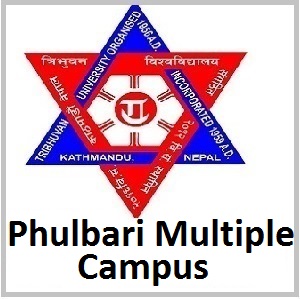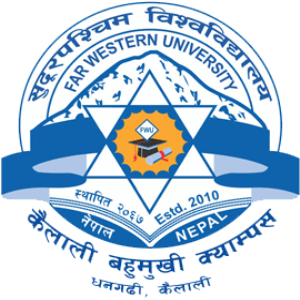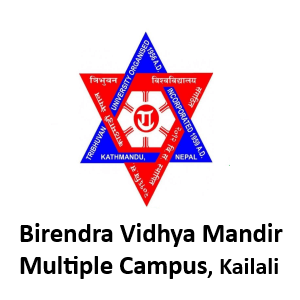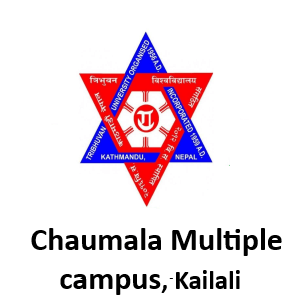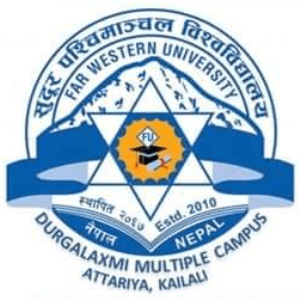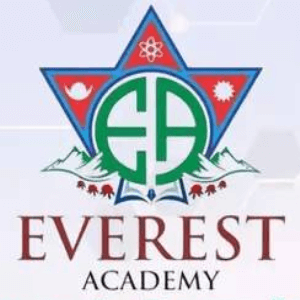Overview
Bachelor of Education (B.Ed) at Tikapur Multiple Campus
The Bachelor of Education (B.Ed) program at Tikapur Multiple Campus (TMC) offers a four-year, foundational degree for students in Nepal's Far-Western region aspiring to a comprehensive, in-depth undergraduate teacher education. As a well-established B.Ed program in Nepal, this course, under Far Western University (FWU), provides a broad and thorough preparation in educational theory, pedagogy, subject-specific content knowledge, and practical teaching skills.
Located in Tikapur, Kailali, the TMC B.Ed degree is designed for individuals who will enter teacher education directly after high school and aim for careers as professional teachers in Nepal's school system.
This Bachelor of Education Nepal program emphasizes a balanced curriculum, extensive teaching practice, and holistic teacher development, preparing graduates for successful and fulfilling teaching careers. Explore the curriculum, opportunities, and benefits of pursuing your B.Ed at Tikapur Multiple Campus.
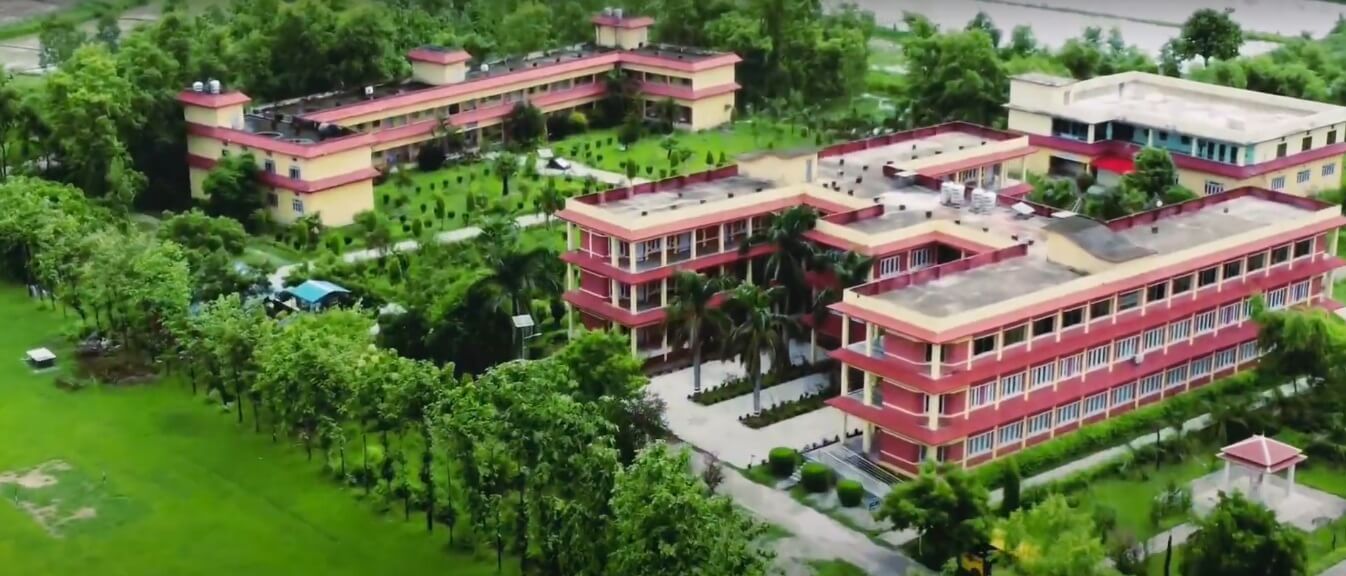
Overview of the Bachelor of Education (B.Ed) Program
The Bachelor of Education (B.Ed) at Tikapur Multiple Campus is a four-year, semester-based undergraduate program providing a comprehensive teacher education. Aligned with Far Western University standards, this FWU B.Ed program offers a balanced curriculum covering educational foundations, pedagogy, subject-matter specialization, and practical teaching experience. The program structure is intended to produce well-prepared, competent, and ethical teachers for Nepal's schools.
Curriculum Details
The B.Ed curriculum is comprehensive and structured over four years.
Core Courses
The B.Ed program includes core courses across several key areas of education:
-
Philosophical Foundations of Education: Educational philosophies, principles, and historical educational perspectives.
-
Sociological Foundations of Education: Social context, sociology of schooling, education and society.
-
Psychological Foundations of Education: Learning theories, child and adolescent development, educational psychology, and individual differences.
-
Curriculum Studies: Curriculum theory, development, syllabus design, and instructional planning.
-
Instructional Technology and Media in Education: Using technology and media for effective teaching and learning, digital literacy for educators.
-
Educational Management and Administration: Principles of school management, educational administration, school leadership, and organizational behavior in education.
-
Inclusive Education and Special Needs Education: Principles of inclusive education, addressing diverse learning needs, special education practices, and creating inclusive classrooms.
-
Educational Evaluation and Assessment: Principles of assessment, classroom assessment techniques, test construction, and evaluation methods for learning outcomes.
-
Research Methods in Education: Introduction to educational research, qualitative and quantitative research methodologies, and basic research skills.
-
Nepali Language and Communication in Education: Effective communication in Nepali for teaching classroom language skills in Nepali.
-
English Language and Communication in Education: English language proficiency for teachers, communication skills in English for educational contexts.
-
Civic Education and Human Rights Education: Principles of civic education, human rights, social justice, and values education in the curriculum.
-
Environmental Education and Sustainable Development: Environmental issues, sustainability principles, and integrating environmental education in teaching.
-
Subject-Specific Content Courses (Two Subject Areas): In-depth content knowledge in two chosen subject areas (e.g., English, Nepali, Mathematics, Science, Social Studies), providing a strong subject matter base for teaching.
-
Subject-Specific Pedagogy Courses (Two Subject Areas): Specialized teaching methodologies and pedagogical approaches for the two chosen subject areas, focusing on effective subject-specific instruction.
-
Teaching Practice/Internship: Extensive practical teaching experience in school settings across multiple years, classroom observation, supervised teaching, and reflective practice.
-
Professional Development and Ethics in Teaching: Teacher professionalism, ethics in education, teacher roles and responsibilities, continuing professional growth, and reflective teaching practices.
Specializations and Electives
In the four-year B.Ed program, specialization is primarily achieved by choosing two subject areas for content and pedagogy. Students select two subjects they intend to teach, gaining in-depth knowledge and specialized teaching skills. Common B.Ed Specializations (subject areas) may include combinations of:
-
English Language Education
-
Nepali Language Education
-
Mathematics Education
-
Science Education (Physics, Chemistry, Biology, Integrated Science)
-
Social Studies Education (History, Geography, Civics, Economics)
The specific combinations of available B.Ed curriculum specializations (subject areas) should be confirmed with the campus administration.
Objectives of the B.Ed Program
The main objectives of the B.Ed program are to:
-
Provide a comprehensive and foundational undergraduate teacher education.
-
Develop strong pedagogical knowledge, teaching skills, and classroom management competencies.
-
Equip graduates with in-depth subject matter knowledge in two chosen teaching subjects.
-
Cultivate ethical and professional values essential for effective teaching.
-
Prepare graduates for successful and fulfilling secondary and lower secondary school teaching careers.
-
Enable graduates to meet teacher certification and licensing requirements in Nepal.
Scope of the B.Ed Program
The scope of the B.Ed program is to prepare graduates for long-term teaching careers in Nepal's school system, primarily in roles such as:
-
Secondary School Teacher (in two chosen subject areas)
-
Lower Secondary School Teacher
-
Upper Primary School Teacher (with further training or experience)
-
Teachers in Private Schools and Educational Institutions
-
Educational Program Assistant or Coordinator
Graduates with a B.Ed degree have a strong foundation for career advancement in education, including leadership roles and further specialized education.
Learning Outcomes of the B.Ed Program
Upon completion of the B.Ed learning outcomes, graduates will be able to:
-
Demonstrate comprehensive knowledge of educational foundations, theories, and practices.
-
Planned and delivered effective and engaging lessons in their chosen subject specializations.
-
Apply diverse teaching methodologies and classroom management techniques effectively.
-
Assess student learning comprehensively and use assessment data to improve instruction.
-
Create and maintain inclusive, student-centered, and supportive learning environments.
-
Integrate technology and media effectively in teaching and learning processes.
-
Demonstrate strong professional ethics, reflective practice, and commitment to lifelong learning as educators.
-
Communicate effectively with students, parents, colleagues, and the community in educational contexts.
Skill Development Modules
The B.Ed program incorporates modules focused on comprehensive B.Ed skill development:
-
Advanced Pedagogical Skills: Diverse teaching strategies, differentiated instruction, student-centered learning, inquiry-based learning, cooperative learning, and reflective teaching.
-
Subject-Specific Teaching Methodology Expertise: Specialized methods for teaching chosen subject areas, content delivery, activity design, and resource utilization in specific subjects.
-
Classroom Management and Leadership Skills: Creating a positive classroom climate, managing student behavior, fostering student engagement, and leadership in classroom settings.
-
Assessment and Evaluation Proficiency: Designing various assessment tools, formative and summative assessments, rubrics and scoring guides, and data analysis for assessment improvement.
-
ICT and Digital Literacy for Teaching: Using educational software, online learning platforms, multimedia resources, digital content creation, and online communication tools for teachers.
-
Curriculum Planning and Implementation Skills: Lesson planning, unit planning, curriculum adaptation, aligning instruction with curriculum goals, and using curriculum frameworks.
-
Communication and Interpersonal Skills for Educators: Effective communication with students, parents, colleagues, and community members, as well as interpersonal skills for building positive relationships.
-
Research and Reflective Practice Skills: Action research, classroom-based research, reflective journaling, using research to improve teaching practice.
Teaching Methodology
The B.Ed teaching methodology is comprehensive and practice-oriented, typically including:
-
Lectures and in-depth seminars on educational theories and principles
-
Demonstrations and modeling of effective teaching practices
-
Micro-teaching sessions, peer teaching, and feedback sessions
-
Extensive teaching practice/internship in diverse school settings across multiple years
-
Workshops on curriculum development, assessment techniques, and classroom management
-
Case study analysis of teaching scenarios and educational challenges
-
Action research projects and classroom-based inquiry
-
Guest lectures from experienced educators, school leaders, and curriculum experts
Faculty Expertise
The faculty expertise in the B.Ed program at TMC includes highly qualified and experienced teacher educators, professors, and lecturers with advanced degrees and extensive experience in education, pedagogy, subject-specific didactics, curriculum development, and teacher training. Faculty are actively involved in educational research, curriculum innovation, and mentoring future generations of teachers.
Admission Requirements
Admission requirements for B.Ed generally include:
-
Completion of 10+2, class 12, or equivalent with minimum D+ grades in all subjects. Preference may be given to students from humanities, education, or science streams depending on chosen specializations.
-
Successful performance in an entrance examination conducted by FWU or TMC (may include general aptitude tests, subject-specific knowledge assessments, and interviews).
-
Meeting any other specific criteria set by FWU or TMC.
Career Opportunities
Career opportunities after B.Ed are primarily in the teaching profession, with strong prospects for long-term career growth, including:
-
Secondary School Teacher (in two chosen subject areas)
-
Lower Secondary School Teacher
-
Upper Primary School Teacher
-
Senior Teacher or Subject Department Head
-
School Counselor or Teacher Advisor
-
Curriculum Coordinator or School-Based Curriculum Developer
-
Teacher Trainer or Resource Person (with further experience and specialization)
-
Educational Administrator or School Leader (with further expertise and advanced degrees)
Student Life and Extracurricular Activities
Student life at TMC for B.Ed students is vibrant and engaging. They have wide opportunities to participate in various extracurricular activities, including education clubs, subject-based societies, debate teams, cultural events, sports, community service projects, and workshops focused on teacher development and educational innovation, which enhance their overall teacher education experience.
Scholarships and Financial Aid
Scholarships and financial aid opportunities are often awarded to meritorious and needy B.Ed students, recognizing the importance of supporting teacher education. The campus, FWU, government agencies, or external organizations may offer various scholarships based on academic excellence, financial need, and specific criteria.
Why Choose This Course?
Choose the B.Ed program at TMC for:
-
Comprehensive and foundational undergraduate teacher education in Far-West Nepal.
-
Balanced curriculum covering educational theory, pedagogy, subject knowledge, and extensive practical teaching experience.
-
In-depth preparation for long-term and fulfilling teaching careers in Nepal's school system.
-
Experienced and dedicated faculty committed to teacher development.
-
Opportunities for specialization in chosen teaching subjects.
-
Affordable fees and accessible teacher education in a supportive community campus.
Why Choose This College?
Tikapur Multiple Campus offers:
-
QAA-certified quality assurance ensures a commitment to high standards in teacher education.
-
Community-centered and supportive learning environment, ideal for aspiring teachers.
-
Commitment to accessible and affordable higher education, making quality teacher training reachable for students in the region.
-
Strong regional focus and dedication to addressing the need for well-qualified teachers in Far-Western Nepal, contributing to educational development in the region.
Conclusion
The Bachelor of Education (B.Ed) program at Tikapur Multiple Campus is an outstanding choice for students seeking a comprehensive, foundational, and career-oriented undergraduate teacher education in Nepal's Far-Western region. With its well-structured curriculum, experienced faculty, extensive teaching practice, and commitment to holistic teacher development, the TMC B.Ed program prepares graduates to be effective, ethical, and successful teachers who will positively impact students' lives and the future of education in Nepal.



